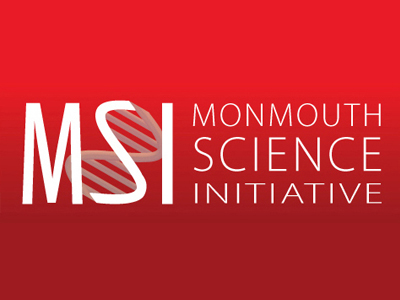Science initiative inspires pupils

Quick links:
Context and background to sectorleading practice
Monmouth School is an independent boarding and day school for boys from the age of 7 to 18 years. The school was founded as a grammar school in 1614 by William Jones, a member of the Haberdashers’ Company of London.
The Monmouth Science Initiative was set up in 2008 by the school’s current head of biology and her predecessor as an innovative partnership arrangement with five local schools – maintained and independent – to improve outcomes and influence the career choices of local sixth form pupils. It was established in response to the widely publicised concerns that have been expressed in recent years about the quality and outcomes of science education in UK schools.
The aim of the Monmouth Science Initiative is to:
- inspire talented local pupils to follow a career in science with a view to enhancing our current global position in scientific education and research;
- enable pupils to develop an understanding of the principles underlying scientific research;
- bring the challenges provided by experimental science to the forefront by offering experiments which are beyond the demands of the A level curriculum;
- enhance pupils’ confidence in the laboratory; and
- enable pupils to develop the independent learning skills needed for higher education courses in the sciences.
Web access to the Monmouth Science Initiative can be made through the link below:
Nature of strategy or activity identified as sector-leading practice
Since 2008, Monmouth School science department staff have made increasing use of their expertise and the school’s facilities to inspire local sixth form pupils and to encourage them to consider the study of science and related disciplines further, by giving pupils opportunities to carry out interesting and sophisticated practical experiments.
Weekly practical science sessions, of an undergraduate standard, are provided for more able and talented sixth form pupils from five local schools and include activities such as genetic transformation of E. coli, amplification and lysis of DNA, radio astronomy and designing, building and programming Lego robots.
In addition to the weekly programme, teaching and training sessions are offered to staff and pupils in partner schools, either on-site or at Monmouth School. In 2012-13, this outreach programme delivered training in advanced biotechnological skills to an additional 60 pupils from local schools. A separate event also took place for a local primary school, enabling 30 pupils to build and control Lego robots.
For the last three years, an annual Monmouth Science Initiative conference has been held at Monmouth School with presentations from a range of providers. This includes local STEM-based industries, multi-disciplinary presentations from academics at Cardiff University and staff from the Monmouth School chemistry department providing pyrotechnic displays.
In the 2013-14 academic year, to celebrate the 100th anniversary of the death of the naturalist Alfred Russel Wallace, the Monmouth Science Initiative welcomed Theatr Na Nóg to perform their play ‘you should ask Wallace’. This was coupled with a presentation by the internationally renowned geneticist Professor Steve Jones who discussed the evolution of man, asking participants “Is man just another animal?”. The whole event was sponsored by Cardiff University and the Linnean Society, with over 400 pupils attending from Wales and the West country.
The Monmouth Science Initiative has developed its partnership with Cardiff University to provide two opportunities during the year for sixth form pupils to visit relevant departments and see what life is like as an undergraduate. The visits provide the pupils with the opportunity to carry out practical tasks in university laboratories and gain an insight into elements of postgraduate research.
Impact on provision and learners’ standards
The Monmouth Science Initiative has successfully supported the national STEM agenda. Through the partnership model, the school has opened its doors to over 300 pupils, with the outreach days and conferences extending this aspect of Monmouth School’s science education to well over 1000 additional pupils.
In addition to pupils’ participation in the Monmouth Science Initiative being very high, the partnership has helped them to improve their standards.
As a result, there has been a higher uptake of STEM-related courses at university by pupils who have participated in the programme and by the number of pupils gaining entry to the most competitive universities in the UK to read these subjects.